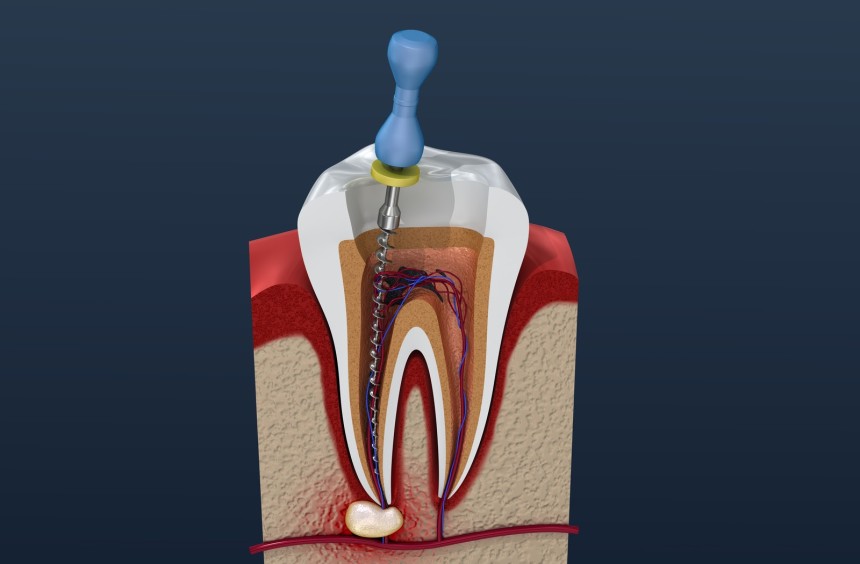
Common Root Canal Complications and How to Avoid Them
Learn about common root canal complications, their occurrence, and how to prevent them.
2025-02-14 11:34:50 - Smile Loft Dentistry
Root canal therapy is a highly effective procedure that helps save a tooth from severe infection or decay. However, like any dental treatment, complications can sometimes arise, leading to discomfort or additional procedures. While most root canal Westwood are successful, some patients may experience post-treatment issues such as persistent pain, reinfection, or tooth fractures. Understanding these potential complications and how to prevent them can help ensure a smooth recovery and long-term success.
Here are the top root canal complications and how to prevent them.
Post-Treatment Pain and Sensitivity
After a root canal, it is normal to experience some level of pain or sensitivity for a few days. This occurs because the surrounding tissues are still inflamed from the procedure. However, if the pain is severe or lasts longer than expected, it could indicate an underlying issue such as incomplete cleaning of the root canals, an undetected crack in the tooth, or excessive pressure from the dental crown or filling.
To minimize discomfort, it is essential to follow your dentist’s post-procedure instructions carefully. Pain relievers, whether prescribed or over-the-counter, can help manage discomfort. Avoid chewing on the treated tooth until it has been fully restored, and be sure to maintain proper oral hygiene to prevent further irritation. If pain persists beyond a week, scheduling a follow-up visit with your dentist is necessary to rule out complications.
Reinfection of the Treated Tooth
A root canal removes the infected pulp from inside the tooth, but bacteria can sometimes re-enter if the tooth is not sealed correctly or if there is a delay in placing the permanent filling or crown. In some cases, tiny canals inside the tooth may go undetected, leading to incomplete cleaning and a higher risk of reinfection.
To prevent reinfection, the treated tooth should be sealed properly with a high-quality filling or crown as soon as possible. Delays in final restoration can leave the tooth vulnerable to bacterial invasion. Additionally, maintaining excellent oral hygiene, including daily brushing and flossing, helps keep bacteria at bay. Regular dental check-ups allow the dentist to monitor the treated tooth and detect early signs of complications before they become serious.
Fractured Tooth After a Root Canal
One of the most common long-term complications of a root canal is tooth fracture. Since the tooth’s nerve and blood supply are removed during the procedure, it becomes more brittle and prone to breaking, especially under excessive pressure from chewing. Without proper reinforcement, the tooth may develop cracks that compromise its structure.
The best way to avoid this issue is by placing a dental crown over the treated tooth. A crown strengthens and protects the tooth, reducing the risk of fractures. Patients should also avoid chewing hard foods, such as ice or nuts, with the treated tooth until it has fully healed. If you grind your teeth at night, wearing a custom mouthguard can help protect the tooth from excessive pressure.
Incomplete Removal of Infected Tissue
Root canals can be complex; in some cases, tiny canals within the tooth may go unnoticed, leading to incomplete removal of infected tissue. This can cause lingering pain, swelling, and the need for retreatment. The complexity of root anatomy makes it crucial to have an experienced dentist or endodontist perform the procedure.
Advanced techniques such as microscopic endodontics and laser-assisted treatments can improve the chances of thoroughly cleaning all infected areas. If symptoms persist after a root canal, additional imaging and possible retreatment may be required to address any remaining infection.
Swelling or Abscess Formation
Swelling and abscesses can develop if bacteria persist inside the tooth or if the infection spreads to the surrounding gum tissue. This often leads to pain, pus formation, and difficulty chewing. In some cases, an abscess can develop even after a successful root canal, indicating a lingering infection.
Taking antibiotics as your dentist prescribes can help eliminate any remaining bacteria and reduce swelling. Proper oral hygiene and regular follow-up appointments ensure any potential issues are addressed before they worsen. If you notice persistent swelling or pus after a root canal, seeking immediate dental attention is essential to prevent further complications.
Allergic Reactions to Root Canal Materials
Although rare, some patients may experience allergic reactions to the materials used in the root canal filling or medications prescribed after the procedure. Symptoms of an allergic reaction can include swelling, itching, or, in severe cases, difficulty breathing.
Patients should inform their dentist about any known allergies before the procedure to avoid this complication. The trusted dentist Westwood can recommend alternative materials or safe medications if an allergic reaction occurs. Monitoring any unusual symptoms after the procedure and seeking medical attention if necessary can prevent serious health risks.
Conclusion
While root canal therapy is an effective way to save a tooth, complications can occur if proper care is not taken. Choosing an experienced dentist, following post-treatment guidelines, and maintaining good oral hygiene can significantly reduce the risk of pain, reinfection, fractures, and allergic reactions. If any unusual symptoms arise after a root canal, it is essential to seek dental care promptly to prevent further problems.
By taking the right precautions, patients can ensure a smooth recovery and enjoy the long-term benefits of a healthy, pain-free smile.
